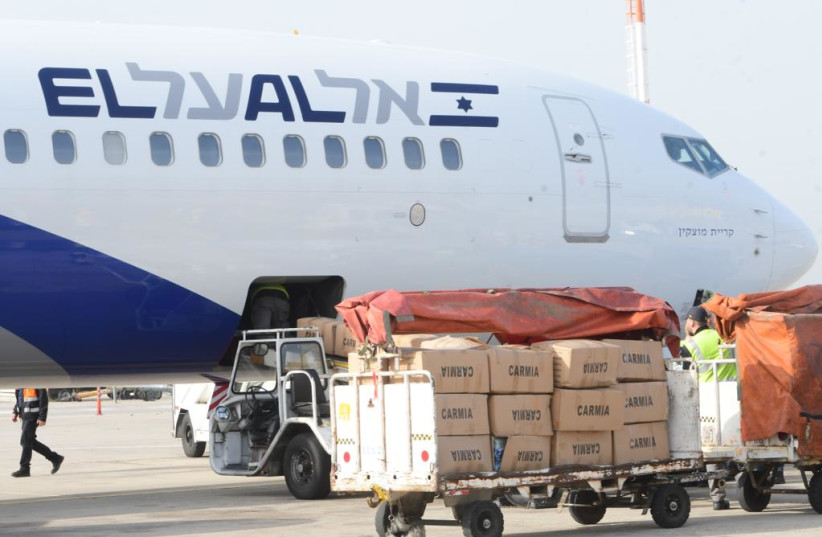There is an increasingly brighter light at the end of a long, Omicron-ridden tunnel for small business owners. Finance Minister Avigdor Liberman has approved an assistance program for small businesses that have been financially affected by at least 35% in the first two months of 2022, with aid delivered reaching up to NIS 600,000.
The plan aims to mitigate damage done to small businesses during the Omicron outbreak by means of a one-time comprehensive payment, which will include several grants that cover various aspects of owners’ businesses that have been impacted by the coronavirus variant.
Additionally, businesses opened in 2020 and 2021 will continue to receive aid according to the preexisting frameworks put in place to help them during prior coronavirus waves.
“As I promised would happen at the end of the month, I have formulated an assistance outline,” said Liberman. “I think it is a responsible and decent outline. It corresponds with our capabilities. I want to thank all the people for their support, for withstanding the pressure.
“To Deputy Minister Abir Kara, to the prime minister and the deputy prime minister and to all the party leaders who were under pressure and demonstrations. They stopped pressuring me for some reason – they probably gave up – but I appreciate all the others who withstood all the pressure and supported the responsible line I try to lead.”

Liberman went on to address the war in Ukraine.
“We, as the State of Israel, will endeavor to provide maximum humanitarian aid, to both Jewish communities and those without Jews who are in Ukraine,” he said. “The aid that the State of Israel provides to Israelis who are in Ukraine. There is nothing like it anywhere in the world. no country invests the same efforts to help its citizens.
“It is clear that this war will have economic consequences, not only for the State of Israel but for the whole world. We are seeing fluctuations in oil prices reaching $104.9. We are seeing fluctuations in world stock markets, rising commodity prices, sharp rises in wheat and coal and so on,” he said.
There has been speculation that the cost of goods typically imported from Ukraine such as cereals, dairy and construction materials, will also rise in the coming weeks as the war in Ukraine continues.
In addition, on March 1, the government increased the maximum price of gasoline by NIS 0.34, up to NIS 7.05 per liter (approximately $8.27 per gallon) – a price increase that reflects the global rise in oil costs.
“The good news is that we are selling gas to the world,” said Dr. Alexander Coman from the Faculty of Management at Tel Aviv University during an interview earlier this week. “The bad news is that we are also consuming gas, and we pay a lot, particularly in Israel, because 60% of what we pay is taxes. That’s the bad news.”
Concluded Liberman, “I hear a lot of calls to lower [prices], but I say no – slowly, slowly. We have to wait for the situation to stabilize, to start taking different kinds of steps now. It’s like in the middle of an earthquake when the whole house is shaking that someone wants to do some plaster. First you have to take a deep breath and see that things stabilize.”
